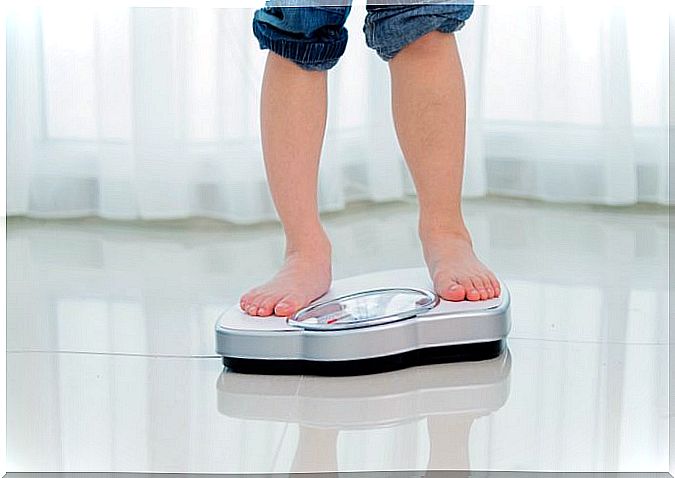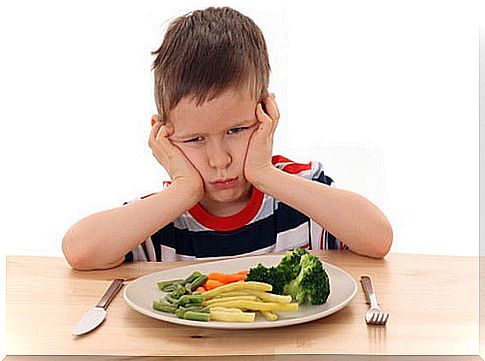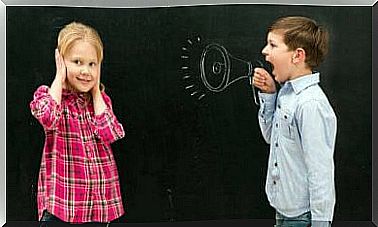Consequences Of A Child’s Poor Diet

The consequences of poor diet in children manifest themselves, among other things, as serious illnesses that can have permanent and devastating effects. A balanced diet is part of a healthy lifestyle that lowers the risk of many diseases in later life.
This will avoid the consequences of a poor diet
There is a consensus among physicians that prevention is a better way than treatment – this means that following a balanced diet in childhood can protect against many diseases for the rest of your life.
Similarly, bad habits learned from parents in early childhood can persist into adulthood. If a child refuses to eat fruit, vegetables, or fish, parents should find another way for the child to get the nutrients contained in those foods.
Adherence to a healthy, balanced, and varied diet in early childhood affects metabolism even in adulthood.
The consequences of a poor diet are, among other things, slow development, poor concentration and fatigue. For example, a child who does not get all the nutrients they need may have more problems reading and studying than usual.
Malnourished children also experience skin and hair problems. Other consequences of malnutrition include visual disturbances, delayed mental and physical development, and persistent illness.
Weight gain and loss
Eating a child, then too much or too little, is the consequences of poor diet are harmful to the child’s body.
One of the consequences is a dramatic weight gain or loss. Some of the effects of an unhealthy diet may only become apparent later in life. Such problems include high blood pressure, osteoporosis, and kidney and heart disease. High cholesterol as well as certain types of cancer are also more common in those who have eaten unhealthily.

Iron deficiency
Iron deficiency due to poor diet can lead to anemia. The effects of iron deficiency on a child’s intelligence development are irreversible – it can limit the ability to understand and analyze and prevent the development of intelligence.
Muscle weakness
Muscle weakness, or myasthenia, is one of the consequences of poor diet. A child with muscle weakness can be lethargic, pale and sensitive to crying and stop growing early.
A child who follows an unhealthy diet may also be physically more awkward than usual and receive lower grades at school. A baby with poor muscle endurance will learn to walk with their peers later.
Childhood overweight
If a child gains weight drastically, it will be even harder for him or her to move and play. Rapid weight gain can also cause hormonal disorders, diabetes, high cholesterol, bone diseases, respiratory problems, and liver disease.
Poor diet is often due to parents not following what their children are eating. If a child’s diet consists of ready-made and processed meals, fatty fast food, soft drinks, coarse and deep-fried delicacies, the consequences of the food will begin to show quickly.
Excessive intake of carbohydrates, proteins and fats can affect a child’s health – finding a balance is therefore paramount.
Protein – too much or too little
Protein intake is essential to ensure muscle growth. However, too much protein can strain the kidneys and liver, which are responsible for removing toxins from the body.
If the body has difficulty removing waste products, excess calcium remains in the body, which can lead to painful kidney stones. Excessive calcium accumulation can also reduce the absorption of other minerals into the body.
Protein deficiency, in turn, can cause problems such as fatigue, muscle atrophy, fatigue, weakness, and lethargy.
Carbohydrates – too much or too little
Excessive carbohydrate intake in childhood can cause diabetes and heart disease in addition to being overweight in adulthood. Excessive sugar causes cavities, mood swings, difficulty concentrating, and hyperactivity.
The other extreme is that a child who consumes too few carbohydrates can be tired and lethargic. Carbohydrates are the fuel for our bodies that give us the energy we need.

The right kind of fats and their amount
If a person gets too much fat from food, he will gain weight. Lack of good fats, on the other hand, can cause vitamin A, D, E, and K deficiency, irritability, difficulty concentrating, and withdrawal.
Vitamin deficiencies can cause thyroid problems, fatigue, anemia, scurvy and rice disease. Parents should be vigilant if a child develops fatigue, cramps, headaches, mood disorders, and decreased mental ability.
The consequences of a child’s poor diet can be permanent. A varied and balanced diet from an early age is the key to a long and healthy life.
While it can be challenging to get a child to eat nutritious food from every food group, it is still an important investment in his or her future and development.









